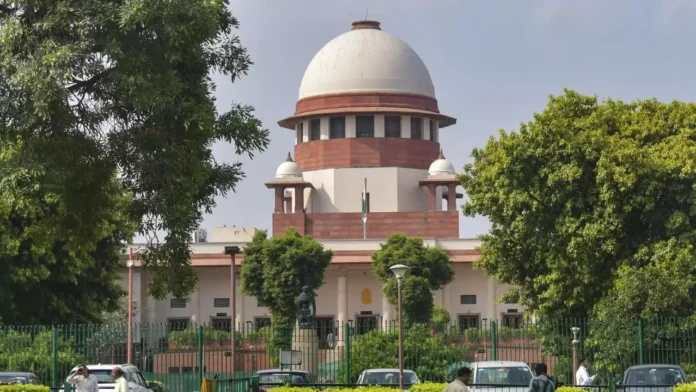New Delhi [India], January 16: The Indian National Congress on Thursday moved the Supreme Court, requesting intervention in cases challenging the validity of the Places of Worship (Special Provisions) Act, 1991. The Act preserves the character of religious places as they existed on August 15, 1947.
Congress argued that the law was enacted to protect India’s secularism, and as the party responsible for its introduction, it should be allowed to defend its validity. The Act, which was included in Congress’ 1991 election manifesto, is seen as crucial for safeguarding India’s secular fabric, according to the party’s application.
“The Act is essential to uphold secularism in India, and the current challenge seems to be a motivated attempt to undermine this principle,” the Congress submission stated. It emphasized that changes to the Act could endanger India’s communal harmony and its constitutional values.
The Congress has sought to intervene in ongoing petitions that challenge Sections 2, 3, and 4 of the Act, which the party believes protect the fundamental right to freedom of religion and uphold secularism. The party’s application called for the dismissal of these petitions, arguing that the Act is an essential feature of India’s constitution.
The Supreme Court is currently hearing several petitions related to the 1991 Act, particularly challenging Sections 3 and 4, which prohibit any changes to the religious character of places of worship and impose penalties for violations. These petitions argue that the law infringes on fundamental rights, including the right to equality and the freedom to practice religion.
On December 12, the Court had restrained all lower courts from taking any action or passing orders related to existing religious structures involved in such cases. Additionally, the Court prohibited the registration of any new suits on this matter while it hears the ongoing challenges to the Act.
Several Hindu petitioners, including figures such as BJP leader Subramanian Swamy and former MP Chintamani Malviya, have filed petitions questioning the constitutional validity of the Act, particularly its exclusion of the birthplace of Lord Ram. In contrast, religious groups like Jamiat Ulama-i-Hind and the All India Muslim Personal Law Board have defended the Act and sought its enforcement to avoid litigation over religious places.
The petitions against the Act claim it infringes upon the right to judicial remedy by barring legal proceedings that seek to alter the religious nature of places of worship as they stood in 1947. Section 3 prohibits the conversion of places of worship into different religious denominations, while Section 4 bars any legal challenges to the religious character of such places.
The Supreme Court’s decision on this matter is awaited, as it has the potential to impact the interpretation and enforcement of religious freedoms and secularism in India.


